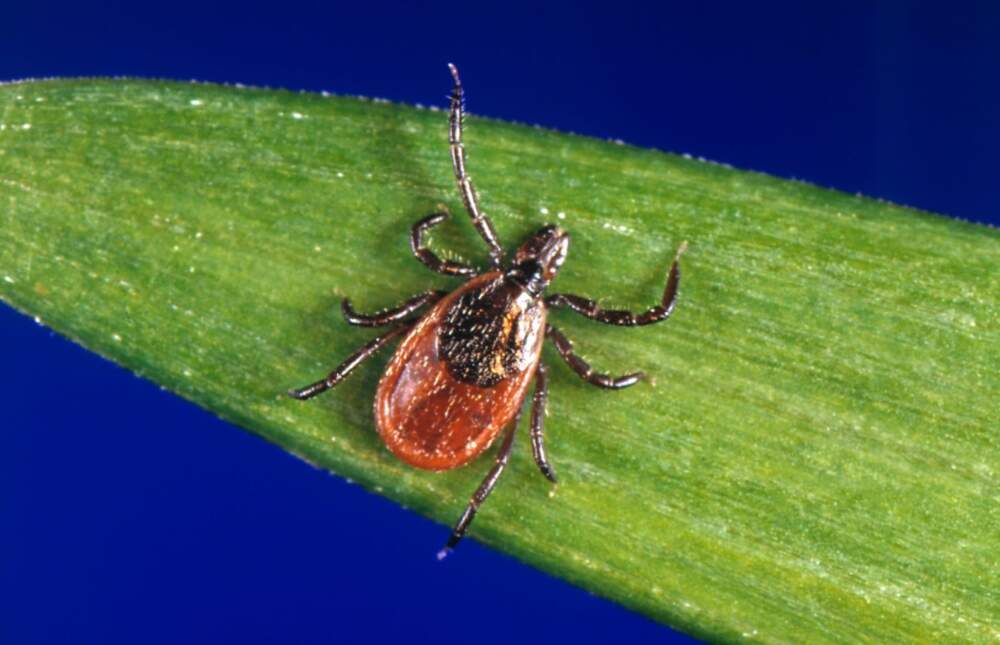Advertisement
Field Guide to Boston
What to know about tick bites, and how to detect and treat Lyme disease

New England is Lyme disease country.
Lyme disease was first identified in Connecticut in 1975. Today, the Centers for Disease Control and Prevention estimates that around 470,000 people in the U.S. are diagnosed or treated for the tick-borne illness each year – most of them here in the Northeast. (Physicians sometimes treat people bitten by a tick for Lyme disease, whether they have a confirmed case or not.)
So what happens if you get a tick bite? How do you know if you have Lyme disease? Here are your questions about Lyme disease, answered:
What are symptoms of Lyme disease?
Symptoms are easily confused with other ailments. Fatigue, headaches, neck stiffness, intermittent muscle or bone pain, and heart palpitations are some of the symptoms of the disease and can develop days to months after the infection, according to the CDC.
Dr. Sam Donta, a retired University of Connecticut professor and Boston Medical Center clinician specializing in Lyme disease research, said bullseye rashes are an obvious sign of Lyme, but do not occur in all cases. This means those without the rash may have symptoms of Lyme disease but assume its something else because they didn't see a rash.
Tom Keane, former Boston city councilor and a contributing writer for Boston publications like WBUR, learned he had Lyme disease after he went to the hospital with shortness of breath. Doctors told Keane he was experiencing heart block and discovered it was caused by Lyme disease. Donta says this symptom is quite rare, and shows up in only 5 to 7% of Lyme cases.
"My number one lesson to people is, don't do what I did and try to ignore symptoms," said Keane, who has been telling his story out to encourage more testing. "If you feel that something is off, ask your doctor about it."
(For more on how to look for tick bites in your pets, and how to know it's time to go to the vet, click here.)
Advertisement
How do you test for Lyme?
Doctors may use blood or spinal fluid tests to look for Lyme. These tests detect antibodies the body makes in response to the Lyme disease bacteria, said Donta. But tests taken after soon a tick bite may not be accurate because the body hasn't built up a response yet.
That's why a blood or spinal fluid test result is looked at in combination with other factors, like symptoms and the likelihood of a patients' exposure to ticks, to determine if someone has Lyme disease.
How is Lyme disease treated?
Lyme disease can be treated by antibiotics.
And the earlier you start antibiotics after infection, the better, according to the Massachusetts' Department of Health website. Earlier treatment prevents long-term, persistent issues with the disease.
How can I protect myself from Lyme?
The best way to prevent Lyme is to protect yourself from getting bit by a tick.
You can spray treat your clothing or outdoor gear with Permethrin, an insecticide that repels ticks along with other bugs. Wearing long-sleeved shirts and long pants tucked into boots or socks help keep ticks off skin. The state's Department of Public Health also recommends wearing light-colored clothing so you can spot dark tick on fabrics easier.
If you have a house with a yard, keep the grass short, Donta suggests. Ticks tend to live in tall grasses and wooded areas and Donta said the bacteria that causes Lyme are sensitive to heat and sun. Keep any playground or recreation equipment out in the sun if possible.
Is there a vaccine against Lyme?
There was a vaccine in use against Lyme 20 years ago, and it worked well. But it was discontinued after claims of some side effects like arthritis (even though the adverse effects were not proven).
Donta said there are some vaccines in development that look promising. As WBUR previously reported, one vaccine from Pfizer and pharmaceutical company, Valneva, entered its final stages of clinical testing in 2022. If the trials are successful, the companies could seek authorization for this new vaccine in 2025.
This article was originally published on April 05, 2022.
This segment aired on April 5, 2022.


